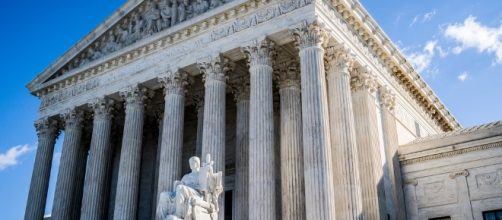The travel ban case that was before the Supreme Court took an unexpected turn earlier today when Oral Arguments from both sides were canceled. The court had slated October 10th to hear the arguments but today, the highest court said that it had canceled the earlier schedule.
Instead of the planned oral arguments, Fox News reported that the Supreme Court would hear from both sides if the issue of the travel ban was solved after President Trump announced a reviewed version on Sunday night. The court expects the briefs to be submitted by October 5th.
Request
The Supreme Court in a one-page unsigned document said the announcement was not a final ruling on the matter, but it had only removed the oral argument part of the case for the moment.
The court's announcement was in response to a letter filed by Solicitor General Noel J. Francisco who had suggested to the court, that since the March travel ban that had been issued by the government had expired, the court should request for supplementary briefs from both sides.
According to Irv Gornstein, Executive Director of the Supreme Court Institute at George Town Law, when a policy expired and another one took its place, a court may consider a challenge to the expired policy to be moot. He added that if the new proclamation announced did not cause any injury to the aggrieved parties, then it would not be necessary to continue with the case.
Alternatively, if the parties still felt affected by the new policy, then, the case can start afresh.
New restrictions
In the updated proclamation announced by Trump, citizens from eight countries were barred entry into the US---North Korea, Syria, Iran, Chad, Somalia, Yemen, Venezuela, and Libya. The new restrictions will take effect from October 18th, with Chad being the surprise country to appear in the government's travel ban list.
Rights groups
Immigration rights groups criticized the new restrictions and observed that the president had removed majority Muslim countries to support his argument that the ban was meant for national security. Naureen Shah of Amnesty International US pointed out that the addition of new countries to the ban did not change the fact that government-sanctioned discrimination was at play.
Shah added that the proclamation was baseless in vilifying entire populations, and would affect ordinary people negatively, especially those who relied on working, studying and traveling to the US.


